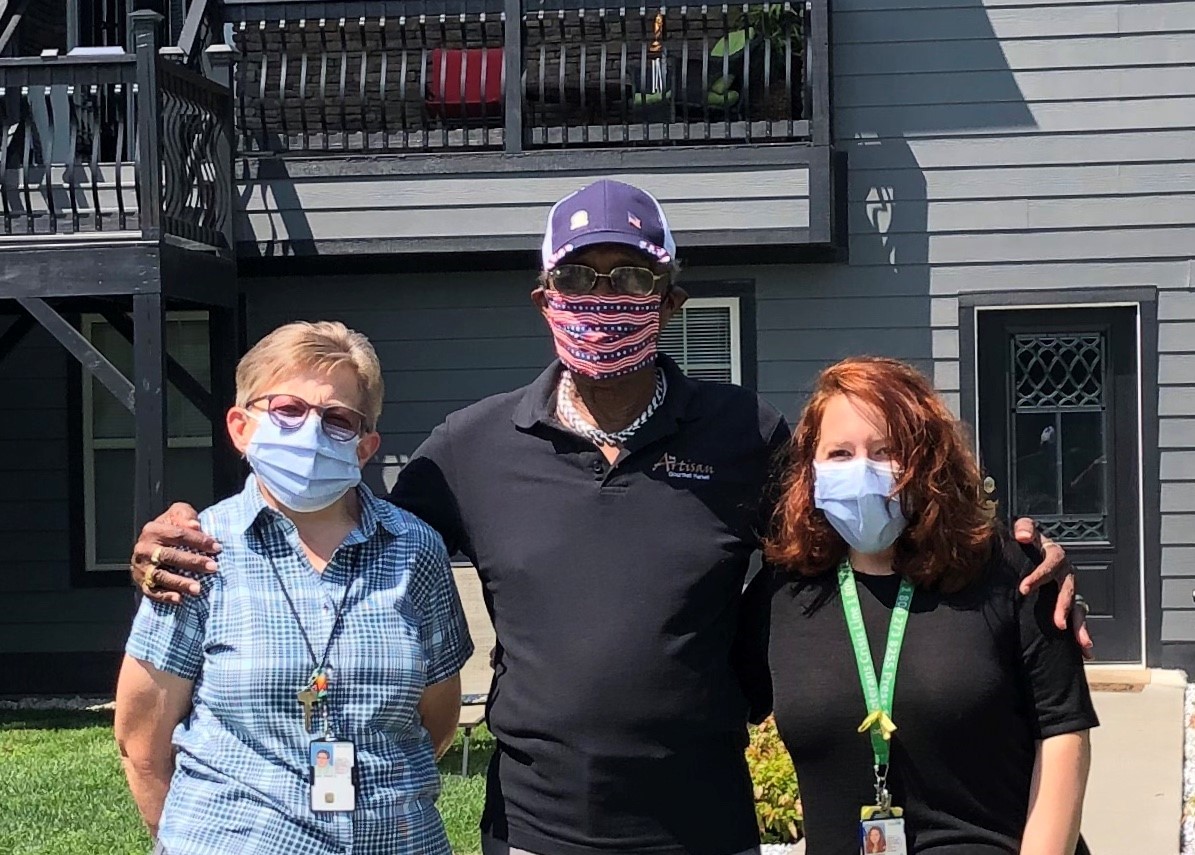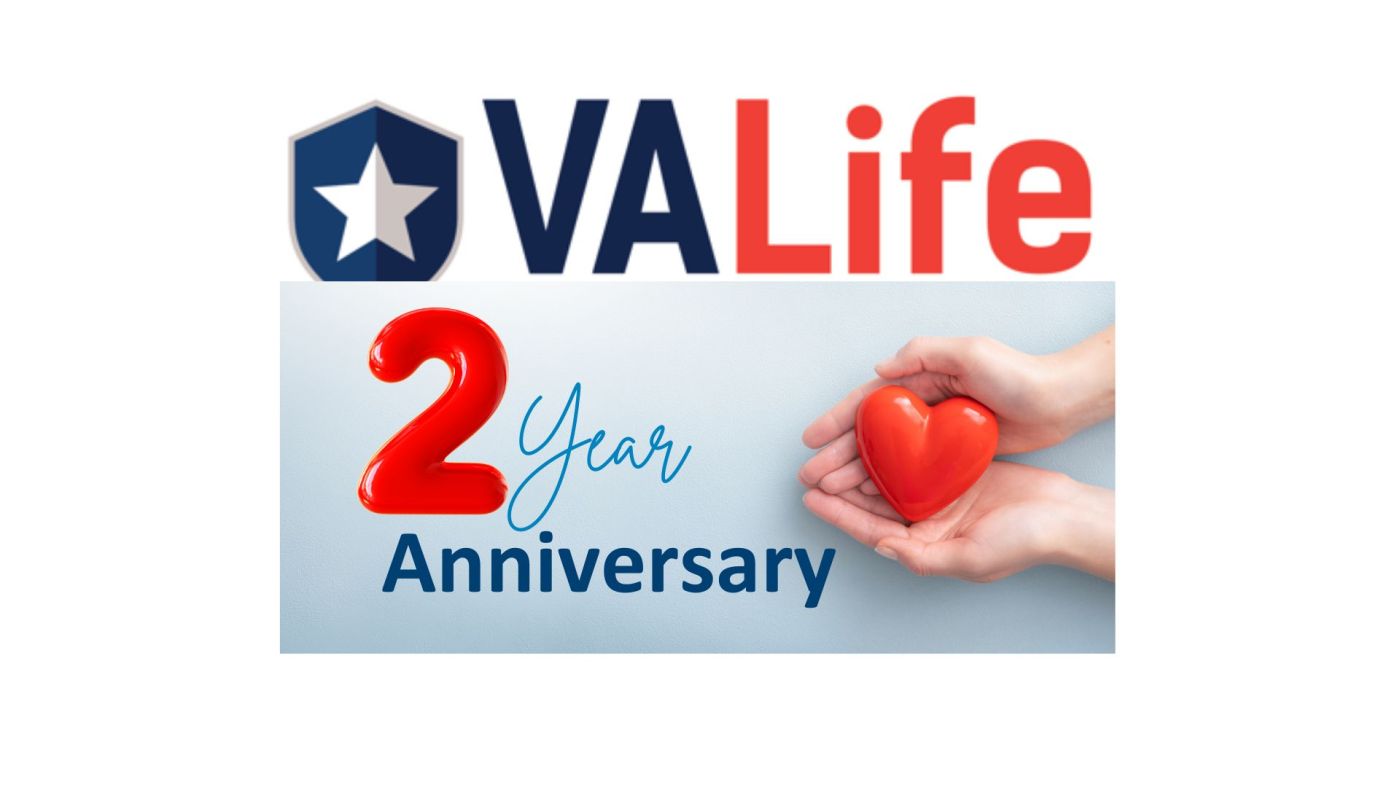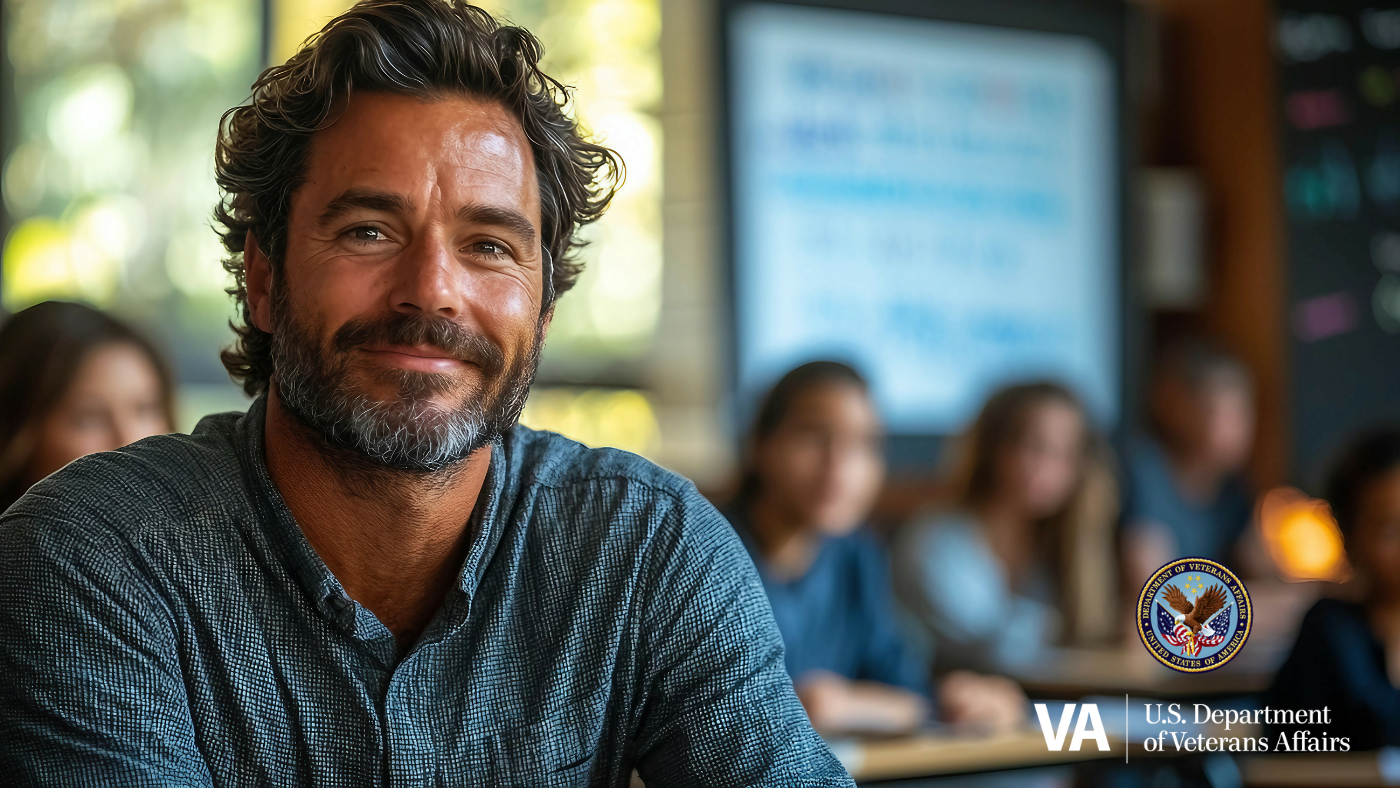In 2017, Army Veteran Laddie McMillian faced declining health and housing instability. He entered the Veterans Restoration Quarters after losing his home, then later obtained housing with the assistance of the U.S. Department of Housing and Urban Development-VA Supportive Housing (HUD-VASH) program.
Through VA’s collaboration with HUD, eligible Veterans receive HUD-VASH vouchers to make market rate housing affordable. They also receive wraparound supportive services, such as case management, financial literacy training, healthcare, and other types of assistance from VA.
McMillian never had reason to think he might one day need this help. He joined the Army at 16, serving as a medic toward the end of World War II and during the Korean War. And, upon leaving the military, his stable and varied civilian career path included working several jobs and opening five different businesses around Asheville, N.C.
HUD-VASH helped MacMillian get back up, but the help and support didn’t end there. He was living on his own in a three-bedroom trailer for more than two years after securing his HUD-VASH voucher. But in June of 2020, he needed a living situation that provided more case management support and daily interaction. Through a partnership with the Home-Based Primary Care and Medical Foster Home programs, HUD-VASH streamlined a process that allowed McMillan to live in an adult medical foster home while still receiving a HUD-VASH subsidy.
MacMillian then enrolled in a medical foster home at the Charles George VA Medical Center in Asheville, which matches disabled Veterans with non-family caregivers who share their homes to provide on-going care. Some – but not all – residents at VA-approved medical foster homes are Veterans. VA carefully screens and trains the caregivers to ensure that they meet all safety requirements and are suitable for the program. The goal of the program is to avoid placing enrolled Veterans in nursing homes.
Life at the foster home
After over two years in the HUD-VASH program, McMillian is constantly enriching the lives of his medical providers.
“Laddie [McMillian] is the most pleasant and supportive person I’ve worked with,” said Lauren Zaloshinsky, McMillian’s HUD-VASH case manager. “He is so open to supporting others. I couldn’t be more thrilled that this placement is working so well for him, and he’s getting the best possible care with assistance from HUD-VASH, Home-Based Primary Care, and the Medical Foster Home Program.”
Penny James, the Medical Foster Home Program Coordinator also added, “Laddie [McMillan] is ideal for the program where he receives needed support while remaining as independent as possible. He is delightful and has blended exceptionally well with this family, including the two other Veterans in the home.”
McMillian loves his living situation, enjoying his three-bedroom home surrounded by lots of outdoor areas for him to walk around — and even a flock of friendly chickens.
“It feels like yesterday since I arrived at the foster home,” McMillian said. “The people here are wonderful, and we really have a good time! We recently had Bingo, and usually play fun games like that. I just enjoy it so much here.”
More Information
- Learn about the HUD-VASH program and enrollment eligibility at va.gov/homeless/hud-vash.
- Veterans who are homeless or at risk of homelessness should contact the National Call Center for Homeless Veterans at 877-4AID-VET (877-424-3838).
- To find up-to-date information and resources on COVID-19, check out VA’s resource page.
Army Veteran Deborah Lee is a HUD-VASH regional coordinator, providing consultation and oversight for HUD-VASH programs across 7 VISNs.
Topics in this story
More Stories
How much do you know about VA care, benefits and services? Don’t miss out on what you've earned—check out the "2025 VA Federal Benefits Guide for Veterans, Dependents, Survivors, and Caregivers" handbook to learn more.
VA’s newest life insurance program, Veterans Affairs Life Insurance (VALife), has been open for two years and now provides full coverage to its policyholders who enrolled in January 2023.
VA has updated its process for awarding G.I. Bill benefits. This means that many Veterans who served multiple periods of military service (for example, Veterans who reenlisted) may be eligible for additional benefits for themselves or their beneficiaries.






